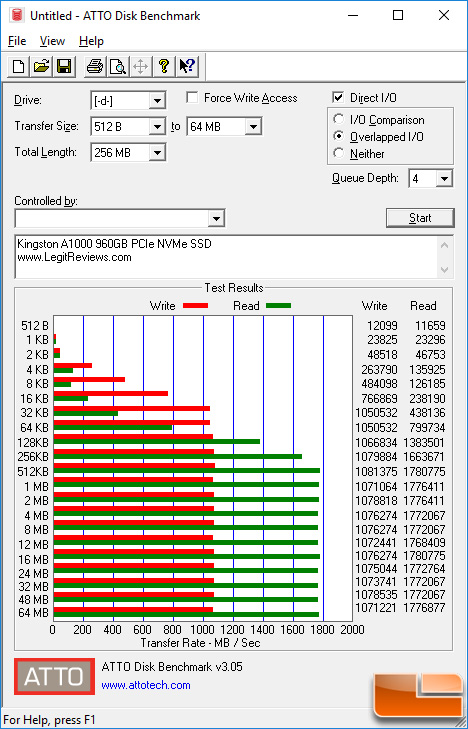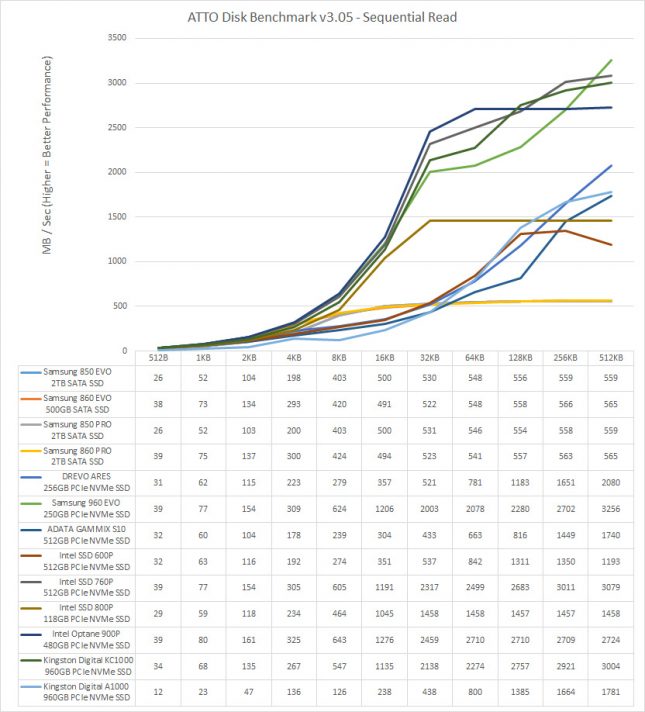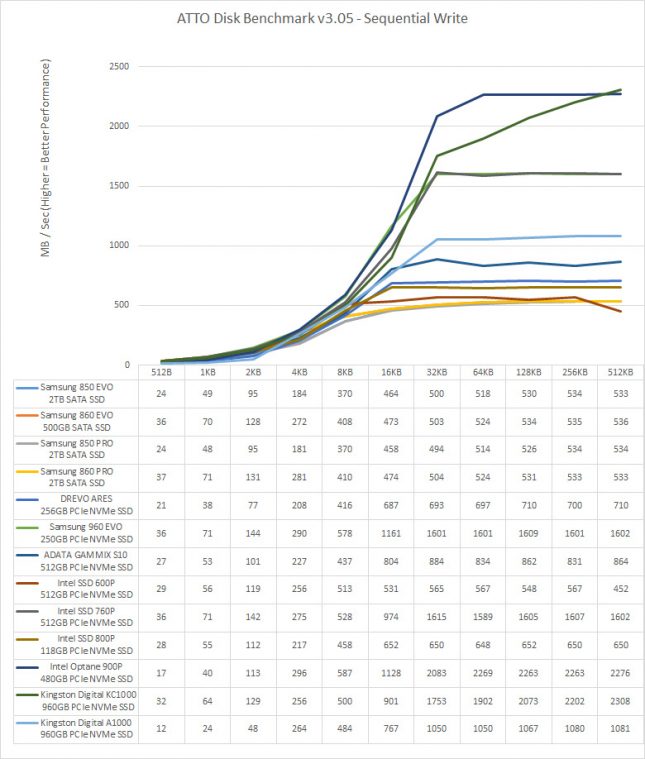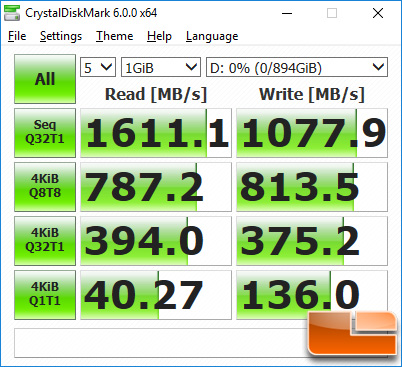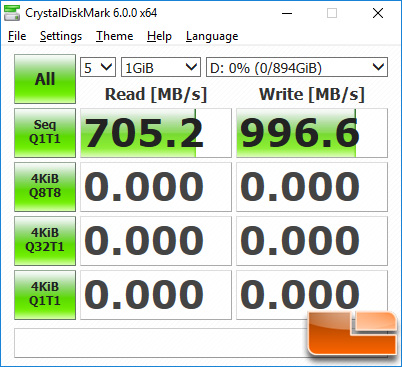Kingston A1000 960GB PCIe NVMe SSD Review
ATTO & CrystalDiskMark
ATTO v3.05
ATTO is one of the oldest drive benchmarks still being used today and is still very relevant in the SSD world. ATTO measures transfers across a specific volume length. It measures raw transfer rates for both reads and writes and places the data into graphs that can be very easily interpreted. The test was run with the default runs of 0.5KB through 64MB transfer sizes with the total length being 256MB.
ATTO -Kingston A1000 960GB:
Benchmark Results: ATTO showed the Kingston A1000 960GB PCIe NVMe drive reaching speeds of up to 1781 MB/s read and 1081 MB/s write in the standard overlapped I/O benchmark. Kingston has this drive rated at up to 1500 MB/s max sequential read and 1000 MB/s max sequential write, so we are happy with the numbers that we are getting from Intel Z370 based test platform.
Benchmark Results: The Kingston A1000 960GB drive doesn’t do too how at the lower block sizes tested, but starts to do good above the 64KB block size.
Benchmark Results: On the write side we again see the Kingston A1000 struggle at the smallest of block sizes, but by 4KB it is on par with most PCIe NVMe drives. Beyond 32KB block sizes, it ends up faster that most.
CrystalDiskMark 6.0.0 x64
CrystalDiskMark is a small benchmark utility for drives and enables rapid measurement of sequential and random read/write speeds. Note that CDM only supports Native Command Queuing (NCQ) with a queue depth of 32 (as noted) and shows the highest score of five runs.
CystalDiskmark – Kingston A1000 960GB:
Benchmark Results: The Kingston A1000 960GB drive topped out at 1611 MB/s read and 1078 MB/s write in the standard sequential write test that is done at QD32. This is well over the drives rated speeds of 1500 MB/s read and 1000 MB/s write. Random 4K QD1 performance was 40.3 MB/s read and 136.0 MB/s write. Those 4K random performance numbers improved up to 787 MB/s read and 814 MB/s write at a queue depth of 32.
Manually running the sequential performance test at Q1T1 showed performance of 705 MB/s read and 997 MB/s write.
Let’s look at some other benchmarks!

